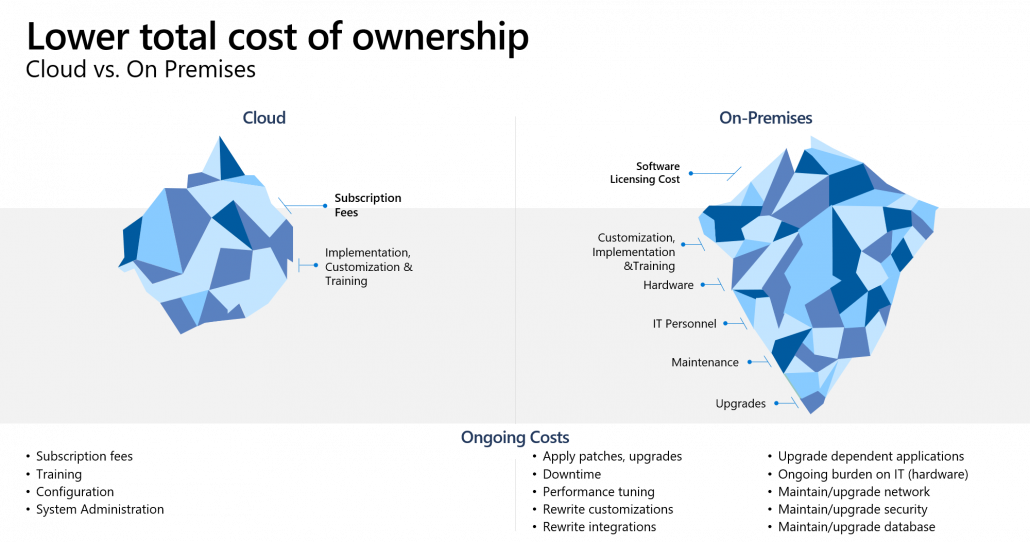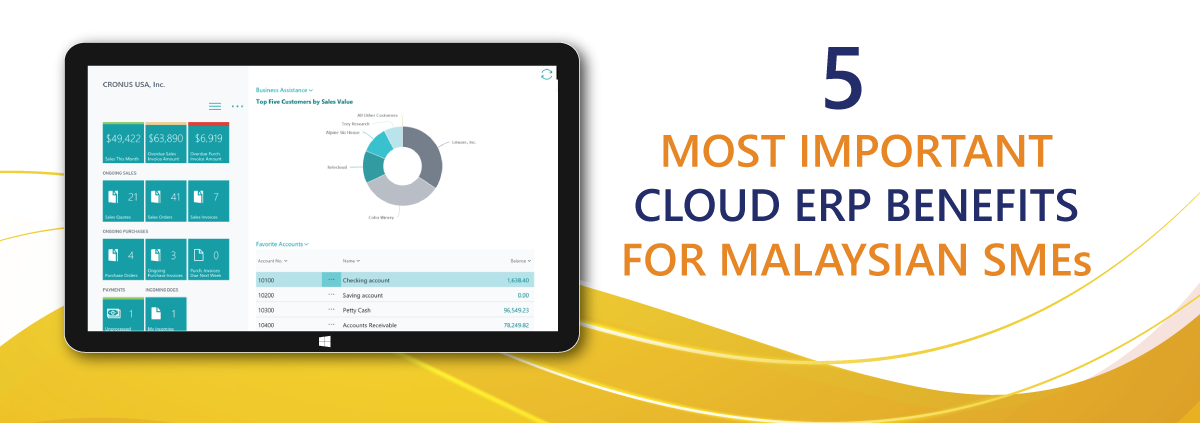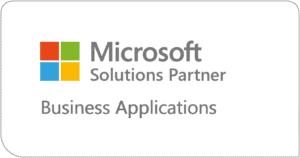15 Most Important Cloud ERP System Benefits for Malaysian SME’S
Year by year Cloud ERP System benefits are more significant and Cloud ERP Softwares are getting better in improving business productivity, efficiency, and decrease cost and many Malaysian businesses have found out that.
Thanks to modern ERP systems we can have our data store in one place. Therefore, benefits like fast reporting, a total overview of an entire business, and quick insights at our fingertips enable us to make smarter and faster decisions and quickly adapt to always changing environments.
Download Now: A new approach to evaluating ERP [Free ebook from Microsoft]
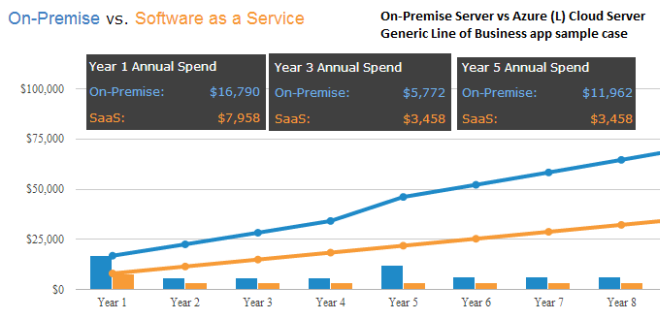
So even thou the initial investment might seem high, thanks to the cloud technology it is becoming more affordable even for small-medium business in Malaysia.
What is Cloud ERP?
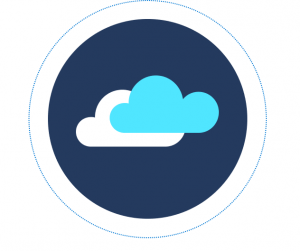
ERP stands for Enterprise resource systems to unified main business processes with tools like analytics, reporting, AI, and automation to improve productivity and efficiency and decrease the cost of the company. The Cloud version is implemented on providers’ cloud computing centers.
Cloud ERP is maintained by the provider and usually offers strong data security and the possibility to connect from anywhere.
Therefore, Cloud ERP is becoming a convenient and modern way of how companies running their business in a more flexible environment.
If you are learning about ERP systems, then download our ebook: A new approach to evaluating ERP from Microsoft to learn how to evaluate your ERP systems.
15 Cloud ERP Benefits
Let’s discover the top 5 benefits that ERP cloud can offer to Malaysian businesses, to stay competitive against organizations that already have implemented cloud ERP and benefit from the modern Cloud ERP software.
1. Fast Adaptability and Scalability
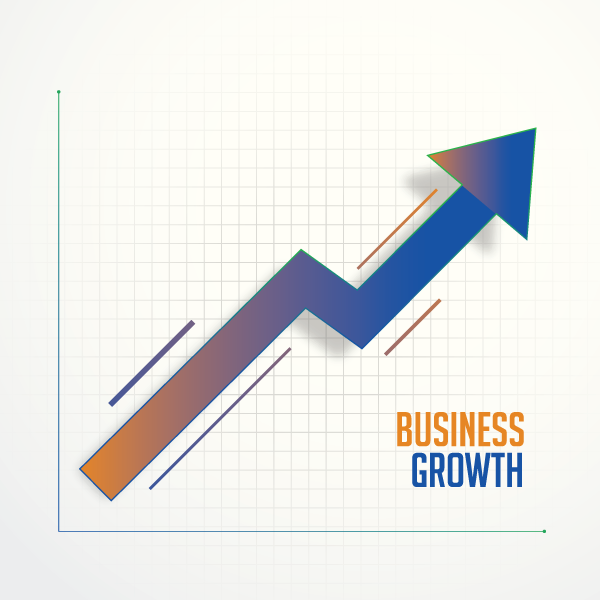
Running your business is one thing but what do you do when the market changes or when you start growing and your basic software just cannot keep up anymore?
The first great benefit of ERP cloud is the adaptability and scalability for your business when is needed.
Because nowadays the market is changing so fast that having a flexible solution is a must for businesses to quickly adapt and continue to do the business.
Also, the same thing, when business is growing, more people are coming and the company needs to evolve, but a non-scalable system would be holding back your organization.
Unfortunately, ERP on-premise is very limited to quickly adapt or scale when is needed which puts your company at great risk.
Why?
Because the markets are changing fast. Therefore, the business should be always ready to respond to the changes and not be hold back.
A New Approach to Evaluating ERP System
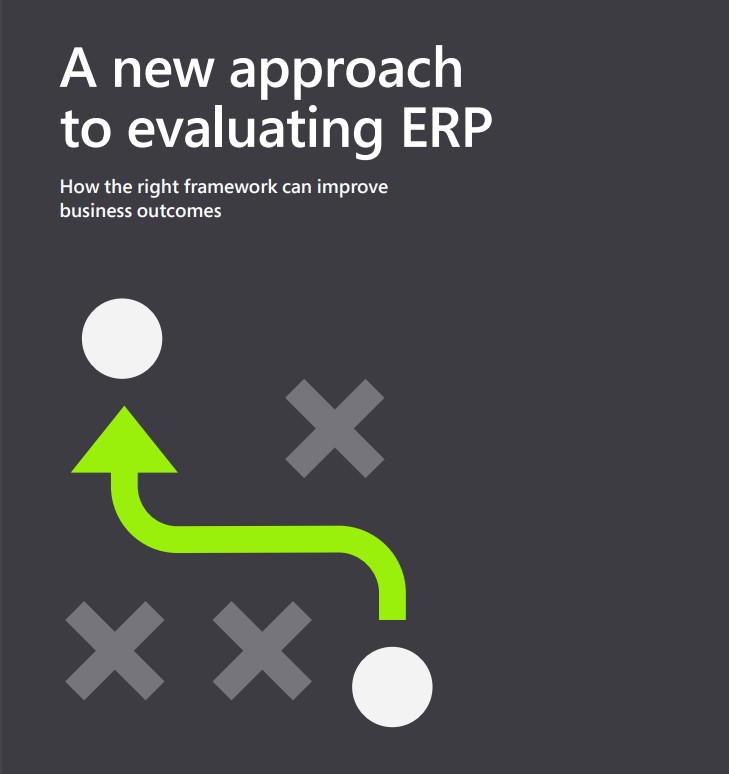
2. Better Data Management and Analyzation
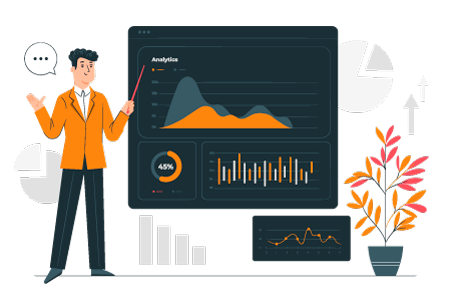
We have entered a digital age where data are the biggest asset company has, but what for have the asset if you cannot use it?
Every day your organization is generating a tremendous amount of valuable information for you to make better decisions.
But it can be quite challenging to collect and analyze all the data and create impactful insights to be able to make the smarter decision.
That is why the next big cloud ERP benefit for Malaysian businesses is the opportunity to connect all disconnected business processes and store the data in one place.
Also, Cloud ERP systems such as Dynamics 365 have integrated artificial intelligence to quickly analyze these data and get insights in real-time to create forecasting and decide faster and smarter.
Yet, not many Malaysian businesses have started using technologies like:
- Cloud technology
- Artificial intelligence
- Automation
These technologies are included within the modern cloud ERP systems so you can unify your business and get the information you need quickly and easily.
3. Increase Productivity & Efficiency for Your Entire Business

Running a business can be overwhelming in Malaysia, especially with new laws coming and old one changing and top of that prices are constantly increasing.
Therefore, to make sure you are still making a profit you need to maximize your efficiency and productivity of your workers and your entire business.
The 3rd benefit of a cloud ERP system for Malaysian SMB and SME’s is increasing your productivity & efficiency for your business by automating repetitive time-consuming task and effective collaboration integration tools like:
- Relationship Insights
- Out of the box reporting and easy customize reporting
- Flow and automation task
- Responsive on all devices
And many more essential tools are included within cloud ERP software for your Malaysian business to increase your productivity and efficiency.
Your business has many tasks that can be automated and therefore ease the time of your employees to focus on more productive and important tasks.
And that is just one of the ways how you can increase your productivity and decrease the cost
4. Strong Data Security

Many Malaysian business owners and managers are using the old excuse “the only reason why we do not use the cloud is due to the poor data security” but this no longer valid.
In a recent study by ComScore, over 40% of small businesses were worried about data security before moving to the cloud. After making the switch, 94% of businesses reported security benefits they had been unable to achieve with their previous on-premises resources. (Adynamics)
Choosing a reputation ERP cloud provider you not only get all the productivity tools to enhance your business but also their security system.
Many of the businesses in Malaysia do not invest in cybersecurity and yet they think having ERP on-premise the only way to protect your data but unfortunately that is not true.
According to Sanjay Bavisi, Malaysian companies are vulnerable to hacking, with the smallest company incurring a minimum cost of US$50,000 (RM209,500) to recover from a single cyber-attack, while larger ones can face up to millions of dollars.
On the other side if you choose modern ERP cloud software’s from a trustworthy provider like for example Microsoft, then your Malaysian SMB business will benefit from strong data security against hackers. Microsoft invests $1 BN every year for their and their customer’s data protection.
Therefore, choosing a Cloud ERP provider is important so your data are safe and you can benefit from strong data security for your Malaysian business.
5. Decrease Your Operational Cost

Lowering your operational costs means higher profits for your business while keeping your current resources.
With ERP software, you empower your employees to do more in less time. Therefore, increase productivity like I already mentioned.
Modern ERP software provides accuracy and automation that together reduce operational and organizational costs without cutting corners.
Thanks to the ERP systems organization can improve the management of their operations while empowering users with the information they need to make decisions faster and more informative.
As such, the ERP software can help improve in many ways like:
- Invoicing.
- Accuracy
- Inventory control.
- Automize and standardize operational processes
- Control your supply chain.
That is why is so important to choose the correct ERP solution which fits your business needs. Therefore, it is better to ask qualified experts for advice to get to know what a modern ERP system can do for your business and what it actually should be able to do.
Otherwise later you might regret your choice of ERP software.
6. Greater profit and ROI
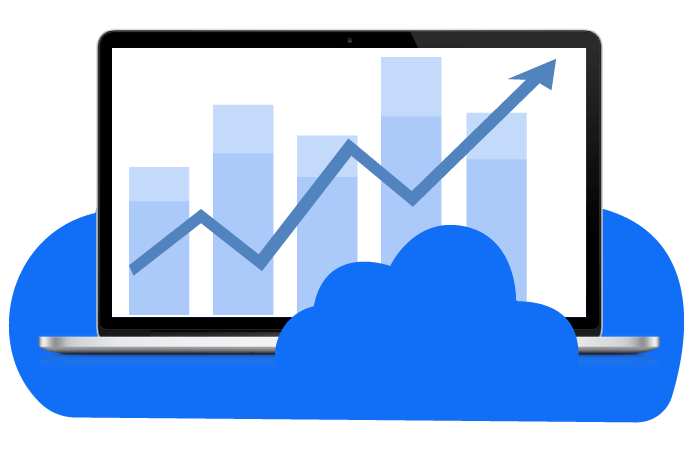
Simply put, companies that move to the cloud make more money. And not by a small percentage, either. SMBs that invest in the cloud report up to 25% growth in revenue and up to 2x the profits over those who don’t. Embracing the cloud is simply a better path to faster growth.
When asked to select areas where ERP produced ROI, the top three answers were reduced IT costs (40%), reduced inventory levels (38%) and reduced cycle time (35%).
Additionally, cloud deployments provide a greater return on investment (ROI) than traditional on-premises software projects, especially in ERP and CRM. For example, Nucleus Research determined that companies that use Microsoft Dynamics 365 see a return of $16.97 for every $1 spent. That’s well above the average for on-premise ERP and CRM applications.
The ROI for a cloud-based ERP system heavily outweighs what a cluster of non-integrated, lacking software offers. Not to mention, the returns are far better on a cloud-base than an on-premise ERP software. With the right ERP system, businesses are able to properly track and measure all of the various benefits of a proper ERP system to see their returns grow continually.
7. Lower costs and CapEx
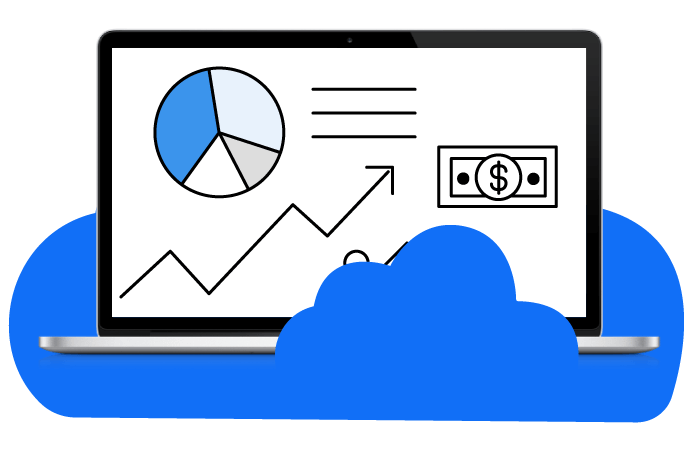
Another reason why choosing Cloud ERP is better rather than on-premises ERP solution is that it has lower costs and CapEx. According to Ultra Consultants one of the top goals for Cloud ERP implementation is achieving cost savings. (46%)
Cloud subscription models eliminate up-front capital expenditures (CapEx) like the high cost of hardware and software licenses for projects like ERP software implementations. This significantly reduce the IT resources that are needed for on-premises solutions as this is handled by the cloud ERP vendor.
They also eliminate server and infrastructure setup, update, and maintenance fees—not to mention the resources saved on software upgrades, energy costs, and underutilized computing resources.
On top of that disaster recovery is also provided by vendors that can ensure business continuity in events like system failure or hackers attack. This enables business to rather focus on running their business than on maintaining their software.
Therefore, Cloud ERP are preferred choice for SMB’s due to up-front cost is lower and lower IT requirements for a business.
8. Unparalleled business flexibility
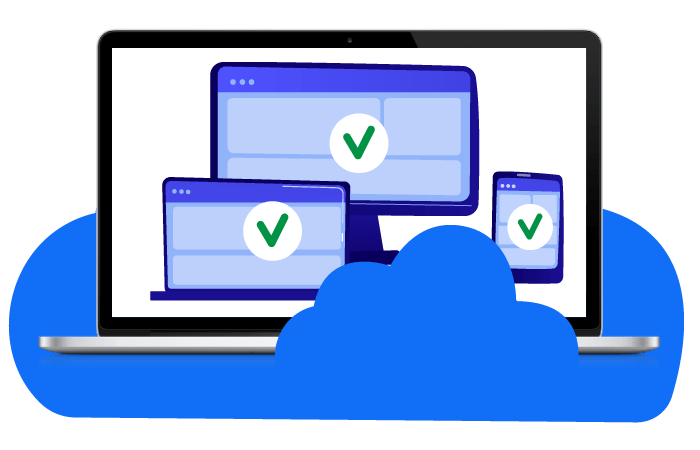
Cloud software allows small businesses to remain always-on regardless of location. In today’s mobile and cloud-first world, the ability to be productive on any phone, tablet, or laptop provides the flexibility required to quickly adapt to changing information and business needs. This means more agile operations and happier customers.
The fast-moving digital work pushing companies to be able to quickly adapt and evolve to disruptive business processes and changing businesses environments. This is the key to business success and survival.
And that is when Cloud ERP systems brings unmatched business flexibility to their core business processes. Whether the company is growing or facing changes or challenges their system can easily and quickly adapt with the company.
This allowing organizations to shift their business models if necessarily faster than ever or simply adding or removing systems when they are no needed. Like this companies always ensure that they have only applications they need without wasting money on things they do not use anymore.
Also Cloud ERP provides great capabilities of Mobile ERP that allows works to access, update and change data in real-time on the go whether they are on the internet or not. Such feature allows employees to approving purchase requests, signing contracts, and viewing inventory level which results in boosting productivity and business efficiencies.
9. Faster IT innovation
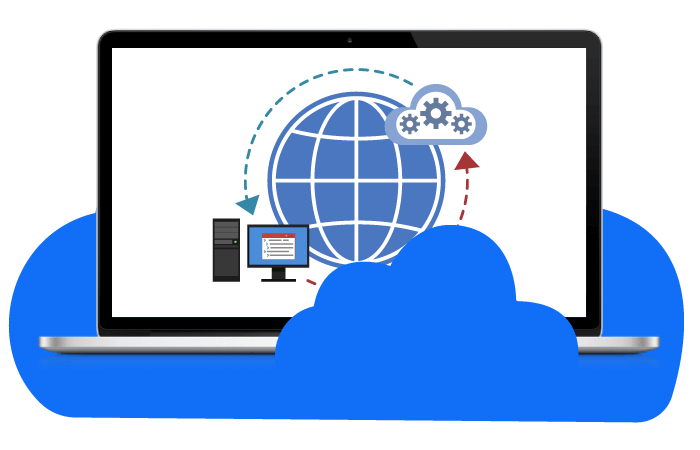
The hassle and cost of routine IT maintenance tasks can be effectively offloaded to the cloud, enabling IT resources to focus on more strategic tasks like addressing problems, improving user experiences, fostering user adoption and best practices, and getting more value out of systems and processes.
Also cloud ERP systems provide better connection as they work on modular base which enable your teams to improve productivity across their business with an integrated application platform that combines reporting and analytics, applications to customize your solution, and automation tools to automate workflows, improve business productivity, and analyze data for insights.
Often Cloud ERP is one destination for business users to discover, trial, and acquire line-of-business SaaS apps.
10. Seamless, automatic software updates
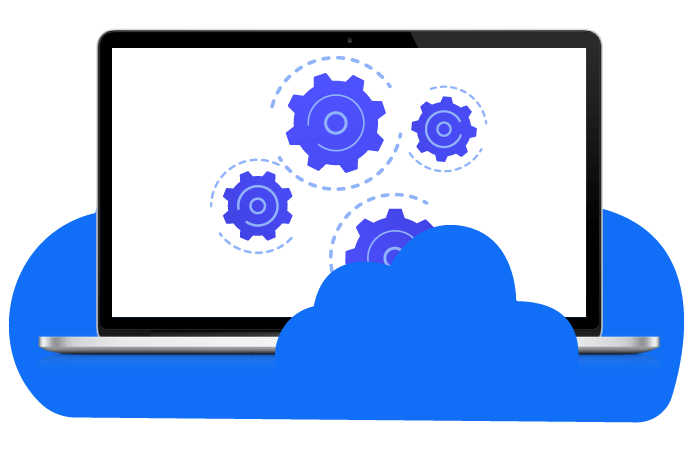
With cloud computing, all software updates are handled automatically, so critical systems always have the latest functionality and security features. This effectively ensures that all the benefits of a vendor’s ongoing R&D investments are transferred to their customer’s business, without that business having to dedicate any time or additional resources.
SaaS applications are continuously updated by their vendors to enable their customers to use the latest tools and supporting their businesses with a single up-to-date software version to deliver on a key promise of cloud software as a service.
Although often wee some concerns from businesses if the new updated version is stable without causing any discrepancies. To avoid such problems Cloud ERP vendors like Microsoft offer programs for early validation during the development cycled Release Validation Program.
Not only that Microsoft also offers businesses to choose how often they want to update their system. As you can see in the picture their Cloud ERP system is updated 8 times each year with twice a year are major updates.
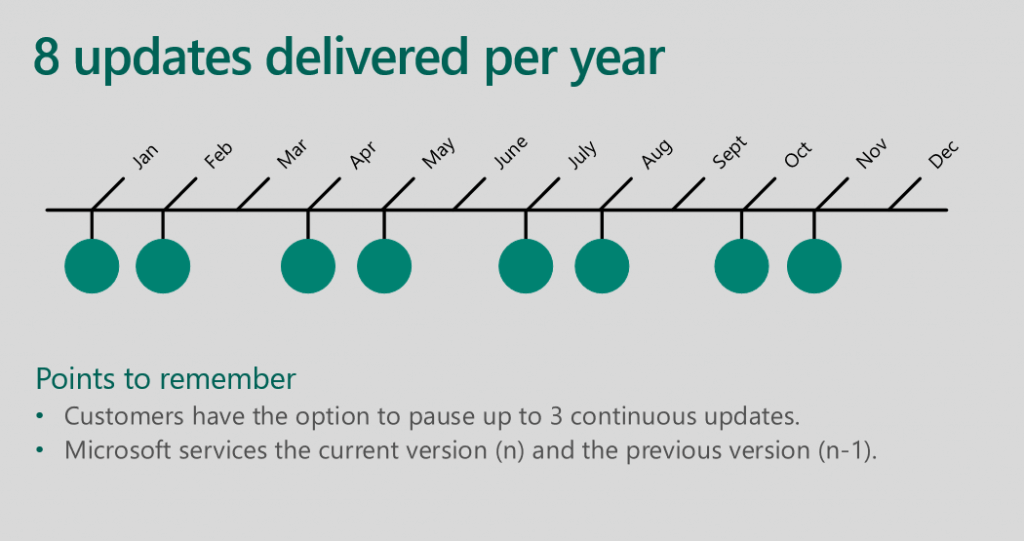
11. Cost-effective scalability
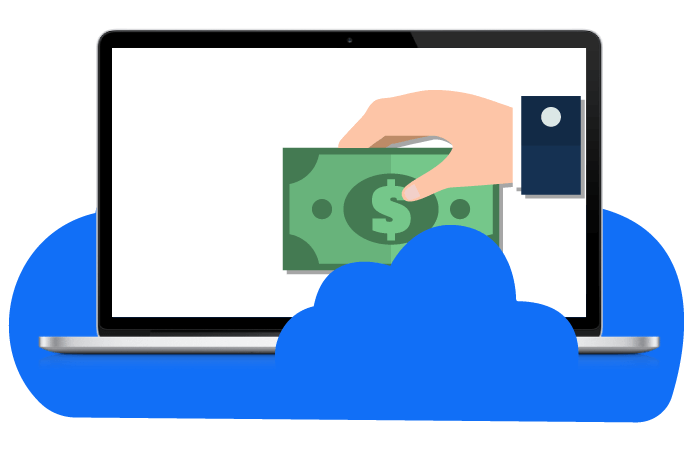
SMBs need increased flexibility to grow and scale without hassle. With the cloud, as an SMB adds users, generates more transactions, or adds more data, services dynamically scale to manage the workload. This eliminates the need to pay for more hardware or maintenance to support business growth.
As a bonus, SMBs only use the energy they need for their cloud apps. Since servers aren’t running idle waiting to be utilized, operations become more energy-efficient, reducing the carbon footprint of the business.
Cloud ERP systems such as Dynamics 365 ERP and CRM applications are hosted on Microsoft Cloud Azure that has enormous potential to scale businesses by eliminating concern for how infrastructure is being hosted or maintained.
This enables users to focus on implementing enterprise resource ERP and CRM strategies that grow their businesses with solutions that can be used at the office or on-the-go via mobile and according to experts Microsoft Dynamics 365 is key to worry-free scalability.
12. Improved collaboration and productivity
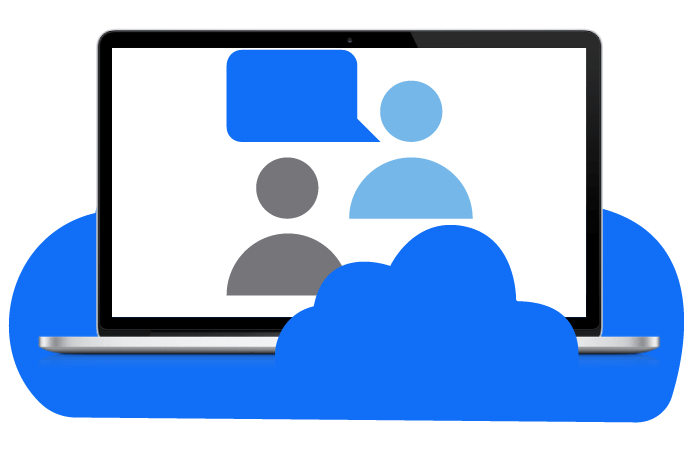
Digital, cloud-based workspaces offer the opportunity to collaborate more effectively and remove data silos to enable greater employee productivity. Additionally, cloud-based office productivity suites and all-in-one business management solutions possess integration capabilities that simply can’t be matched by on-premise ERP software.
Cloud computing also allows teams to be productive, regardless of their location. This enables businesses to offer flexible working arrangements that create a healthier work/life balance and happier employees without sacrificing productivity.
13. Seamless software integration
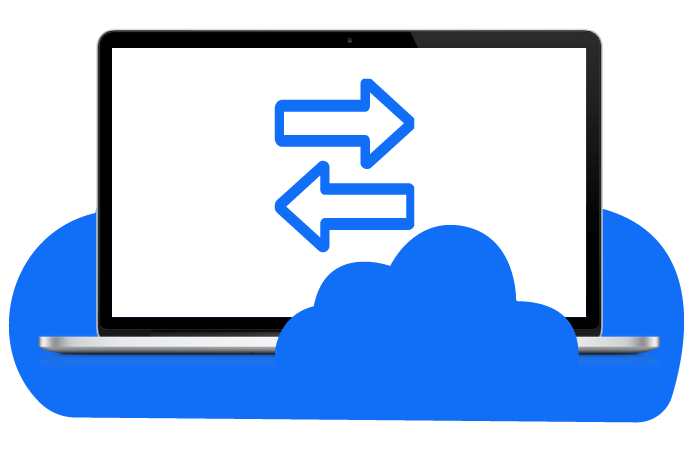
Cloud applications are typically compatible with Application Programming Interfaces (APIs) that simplify integration, while automation tools like Microsoft Flow facilitate stitching them together without any custom code. Data and systems can be connected like never before, resulting in new levels of speed and efficiency.
Cloud ERP software can provide your business with the flexibility to adapt and change as it grows by enabling seamless data integration to remove redundant and repetitive tasks and allow employees to focus on more important tasks.
Seamless software integrations bring you many benefits such as cost savings, increase productivity, reduce human-errors, and many others.
14. Superior security and data protection
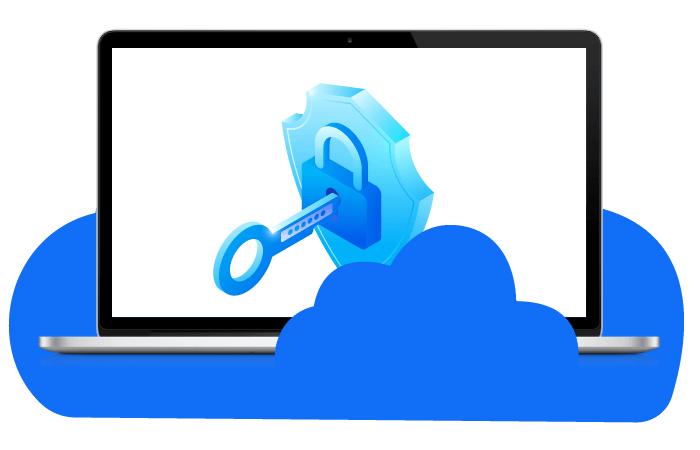
Small businesses are the most common victims of security breaches. In a recent study by ComScore, over 40% of small businesses were worried about data security before moving to the cloud. After making the switch, 94% of businesses reported security benefits they had been unable to achieve with their previous on-premises resources.
Furthermore, physical hardware protection has always been a challenge for SMBs. Laptops get lost or stolen all the time. In addition to the replacement costs, there is an even greater cost of losing important or sensitive data. When storing and backing up data in the cloud, however, data is available and protected regardless of what happens to personal devices.
For example:
Business Central Online uses Azure Active Directory (Azure AD) as the authentication method, which is automatically set up and managed for you.
Data belonging to a single tenant is stored in an isolated database and is never mixed with data from other tenants. This ensures complete isolation of data in day-to-day use as well as in backup-restore scenarios. Furthermore, Business Central Online uses encryption to help protect tenant data:
- Data is encrypted at-rest by using Transparent Data Encryption (TDE) and backup encryption.
- Data backups are always encrypted.
- All network traffic inside the service is encrypted by using industry-standard encryption protocols.
15. Increased competitiveness
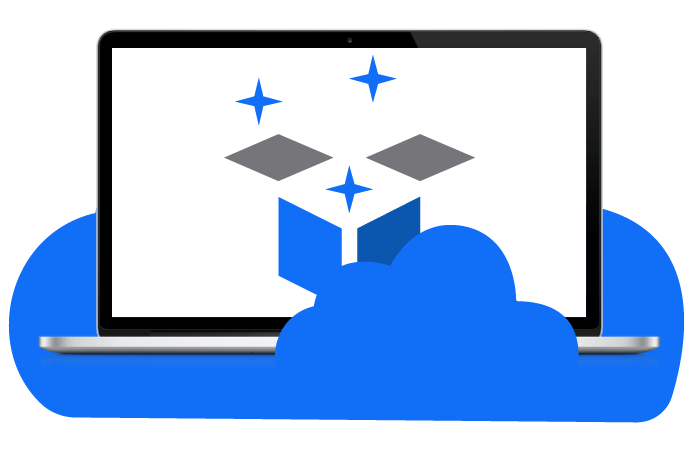
Moving to the cloud gives SMBs access to enterprise-class technologies that were previously only available to the industry’s top players. With the cloud, any business can run on the exact same systems used by the largest, most sophisticated companies in the world, enabling them to innovate and act faster than competitors that manage on-premises legacy systems.
Should You Invest in Cloud ERP or Not?
ERP (enterprise resource planning) software is a great asset for a company to maximize the current resources and decrease the cost. It is becoming a must in the digital economy to have systems that help your employees with tasks, collaboration, and flexibility and connect your data. The Malaysian government had acknowledged the importance of ERP systems and offer many incentives for SMBs & SMEs to invest in ERP systems.
Therefore, yes you should invest in a modern cloud ERP software so you can adapt to environmental changes, scale your business and stay competitive.
The initial investment cost of your ERP software is a concern for many companies when they seek to implement an integrated operating system.
However, the price not should be the only concern as the right ERP software is an investment that can increase profit and reduce the cost of your running business in Malaysia.
Therefore, several factors should be considered while choosing your ERP system and vendor.
Many Malaysian businesses understood the benefits which ERP software brings and seen the productivity improvements within their staff once they implement it.
Conclusion
In conclusion, with cloud software now available that is purpose-built for SMBs to run their sales, marketing, service, accounting, operations, supply chain, and project management activities—all from a single, connected solution infused with AI and advanced analytics—there’s never been a better time for small and medium-sized businesses to make the move to the cloud.
Infographic
DOWNLOAD PDF VERSION HERE (FULL QUALITY)
A New Approach to Evaluating ERP System

Related Resources:
- Cloud ERP Statistics
- Top 4 Reasons Why You Need ERP with Real-Time Insights
- 5 Cloud ERP Mistakes Businesses Usually Makes
- 5 Powerful Ways How Cloud ERP Connects Business Operations
- How to Evaluate a New ERP System
Infographic ERP On Cloud vs On-Premise
